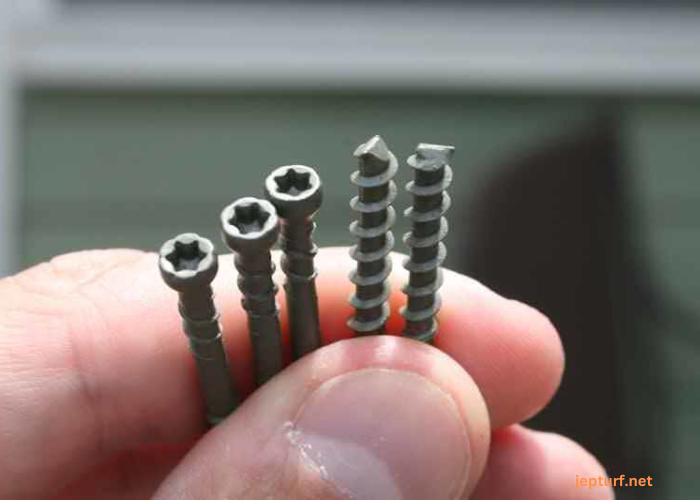When building a deck, the right choice of fasteners can make a significant difference in both the construction process and the longevity of your deck. Decking screws are specifically designed to secure boards to the structure beneath them, ensuring a firm and stable platform. So, this blog will provide you with indispensable insights into selecting these fasteners, ensuring your deck withstands environmental challenges and maintains its longevity.
Deck Material Compatibility
Wood Decking
For traditional wood decking, such as cedar, redwood, or pressure-treated woods, it’s essential to choose screws that are both durable and resistant to corrosion. Stainless steel ones or those coated with high-quality protective materials like ceramic or epoxy are excellent choices, as they can handle moisture and temperature changes without rusting or deteriorating.
Composite Decking
Composite flooring materials require screws that can bind the materials securely without causing damage like splitting. Specialised composite fasteners are designed to prevent mushrooming—a common issue where material bulges around the fastener’s head. These fasteners often come with reverse threads at the top to help pull down the material snugly against the joist.
Selecting the Right Size and Type
Length
The length of the screw should be carefully considered based on the thickness of your boards. A good rule of thumb is to choose the one that is at least 2.5 times the thickness of the board. For instance, for a 2-inch thick board, a fastener of at least 5 inches would be appropriate.
Thread and Point Type
Coarse threads are generally better for softwood as they are easier to drive in and hold tightly. Fine threads are ideal for hardwood and composite materials as they offer greater holding power in these denser materials. Additionally, look for fasteners with sharp points and aggressive threads to ease the installation process and reduce the risk of splitting your wood.
Considerations for Weather and Environmental Conditions
Corrosion Resistance
For decks subjected to severe weather conditions or located near the ocean, opting for screws with exceptional corrosion resistance becomes imperative. Stainless steel fasteners, while more expensive, offer the best resistance to rust and corrosion. Galvanised ones are also an option, but they may not perform as well in coastal areas where the salt air is prevalent.
Aesthetic Considerations
While the functionality of screws is paramount, aesthetics are also important. For visible areas of your deck, you may want to choose the ones that match the colour of your material to create a clean, seamless look. Many brands offer painted ones in various colours designed to blend seamlessly with common materials.
Ensuring Long-Term Durability
When aiming to secure your deck’s long-term durability, prioritising the strength and quality of the fasteners is essential. Opt for screws made from high-grade stainless steel, such as 316, which offers superior corrosion resistance, particularly in marine environments. The quality of the coating on screws, such as epoxy, ceramic, or galvanised finishes, also plays a crucial role in enhancing resistance to wear and environmental exposure. It’s advisable to choose fasteners from manufacturers that provide strong ratings and warranties, assuring reliability and durability over time.
Efficiency in Installation
Efficiency during the installation of these screws is crucial not only for saving time but also for minimising potential damage to your materials. Choosing the suitable screws can significantly streamline the installation process. Consider the ones equipped with self-tapping tips, streamlining the installation process by eliminating the necessity for pre-drilling and minimising the risk of wood splitting. These tips allow the fasteners to penetrate the decking smoothly and securely.
Choosing suitable decking screws involves considering the type of material, the local climate, and the aesthetic outcome you desire. By understanding these factors, you can select screws that will not only hold your deck together securely but also enhance its overall longevity and appearance.





